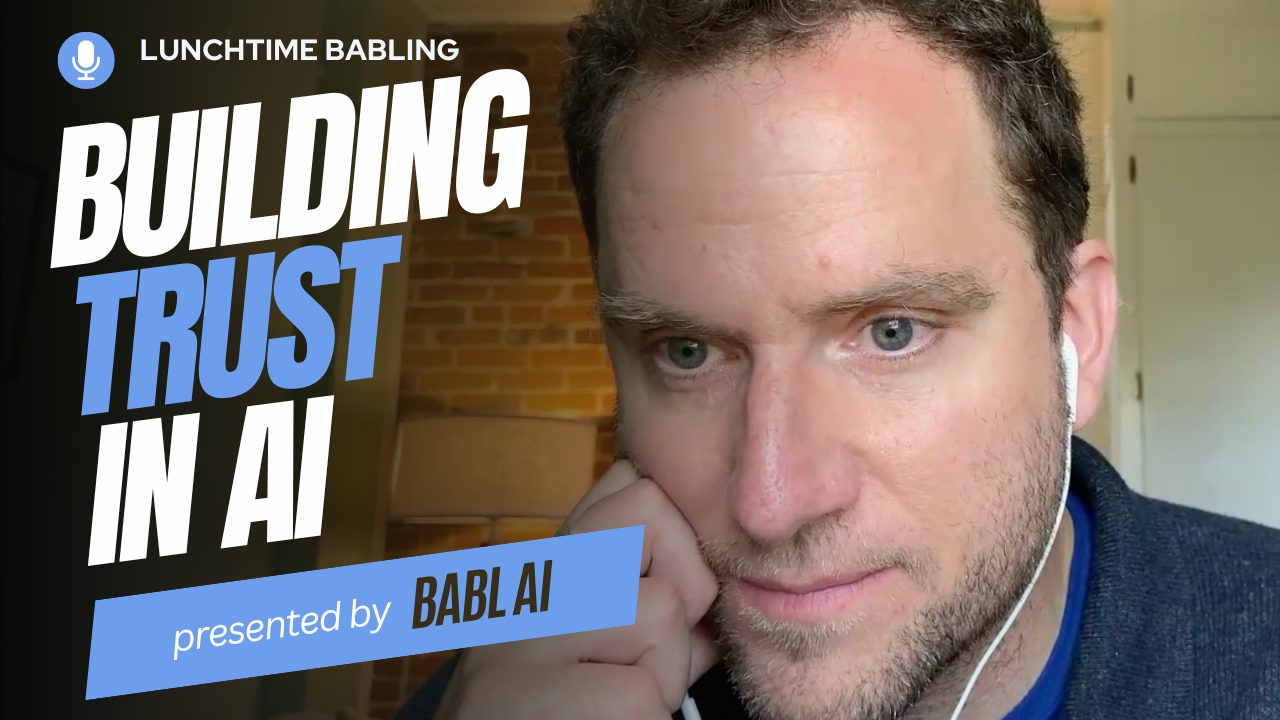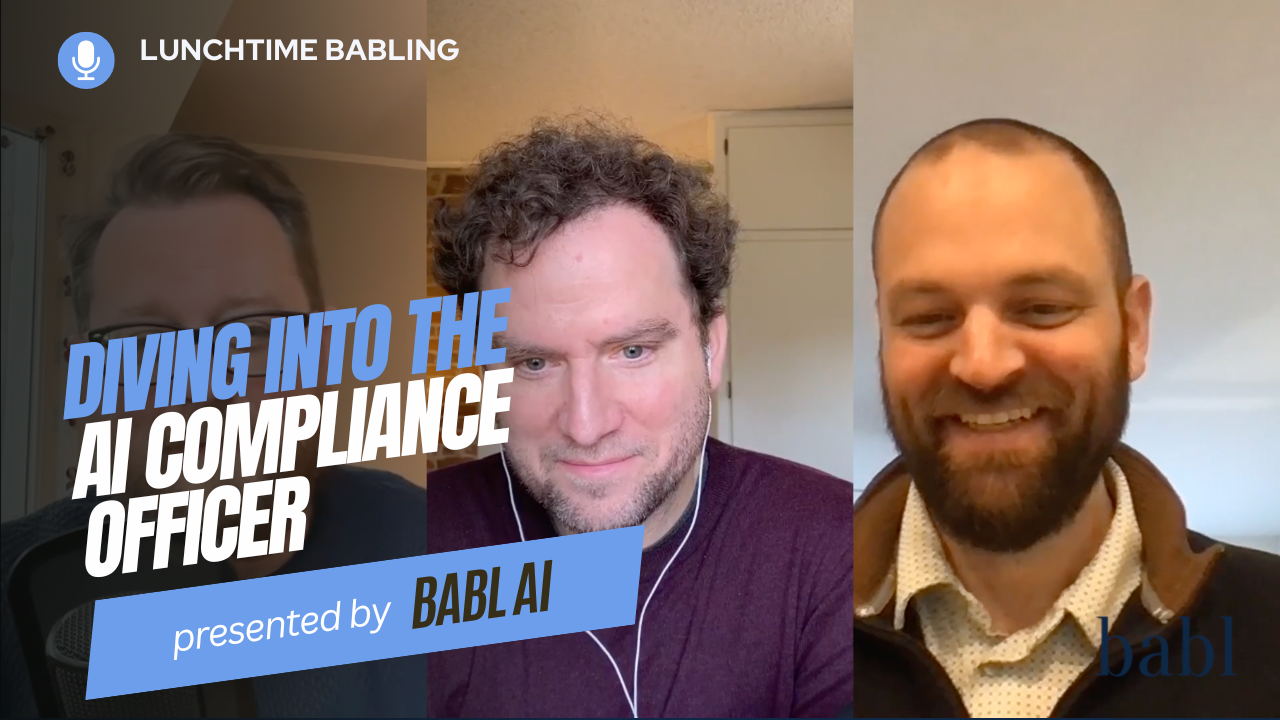In the latest episode of “Lunchtime BABLing,” hosted by BABL AI CEO Shea Brown and special guest Bryan Ilg, the conversation delved deep into the crucial topic of “Building Trust in AI.” This discussion couldn’t be more timely, given the increasing integration of AI into various facets of business and the pressing need for establishing trust with stakeholders.
The Importance of Trust in AI
Shea Brown kicked off the episode by emphasizing BABL AI’s commitment to auditing algorithms for ethical risk, bias, and effective governance. Bryan Ilg, armed with insights from a recent PwC trust survey, highlighted the paramount importance of trust in business relationships. He noted that trust is not just a moral imperative but a significant driver of business success.
The PwC survey revealed some striking statistics:
- 93% of business executives believe that trust impacts their bottom line.
- There is a massive 60-point gap between business leaders’ perception of their trustworthiness (90%) and consumers’ perception (30%).
Bridging the Trust Gap
Shea and Bryan explored the reasons behind this trust gap. One primary issue is the disconnect between what businesses believe they are doing to build trust and how consumers perceive these efforts. Bryan pointed out that trust encompasses both internal and external dimensions, affecting employees, consumers, and investors alike.
Shea stressed the importance of communication in building trust. Companies may be implementing trustworthy practices, but if they fail to communicate these effectively, they miss out on building stakeholder confidence. This is particularly relevant for AI, where transparency and responsible practices must be clearly conveyed to gain trust.
Responsible AI: A Key Component
The conversation then shifted to Responsible AI. Bryan noted that while 39% of executives claim to have a company-wide strategy for Responsible AI, this is often overstated. Many companies conflate cybersecurity practices with Responsible AI without having a comprehensive strategy that addresses transparency, fairness, and accountability.
Shea underscored the need for companies to move beyond high-level principles and implement concrete actions that reflect their commitment to trustworthy AI. He cited the example of ESG initiatives, where clear goals and transparent reporting have helped build trust. Similarly, in AI, companies need to articulate their principles, establish robust governance frameworks, and ensure transparency in their AI processes.
Practical Steps for Building Trust
For companies looking to build trust in AI, Shea offered some practical advice:
- Develop Clear Principles: Start with high-level principles that outline your commitment to responsible AI.
- Implement Robust Governance: Establish policies and procedures that ensure these principles are integrated into everyday operations.
- Communicate Transparently: Clearly articulate what you are doing to stakeholders, including consumers, employees, and investors.
- Seek Third-Party Assurance: Engage independent auditors to verify your claims and provide external validation of your practices.
The Future of Trust in AI
As AI becomes more integrated into business processes, the importance of building trust will only grow. Both Shea and Bryan highlighted the significant competitive advantage that companies can gain by prioritizing trustworthy AI. They foresee a future where trust in AI will be a key differentiator, influencing consumer choices and employee engagement.
Conclusion
The episode concluded with a call to action for businesses to embrace trustworthy AI practices. By doing so, companies can not only comply with regulations but also build lasting relationships with their stakeholders. As Shea aptly put it, “Trust is the thing you’re going to build your brand around. It has to be built into everything that you’re going to try to stick AI into.”
Stay tuned for more engaging discussions on Lunchtime BABLing, and if you enjoyed this episode, don’t forget to like, subscribe, and share!
Lunchtime BABLing can be found on YouTube, Simplecast, and all major podcast streaming platforms.
Need Help?
Stay tuned for more episodes of “Lunchtime BABLing” as we continue to explore the dynamic world of AI, ethics, and regulation. If you have any questions or need assistance with your compliance efforts, please do not hesitate to contact us at BABL AI. We’re here to help you navigate these complex challenges and ensure your AI tools are both effective and fair.




